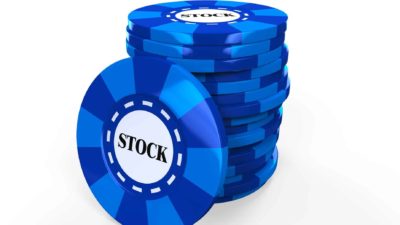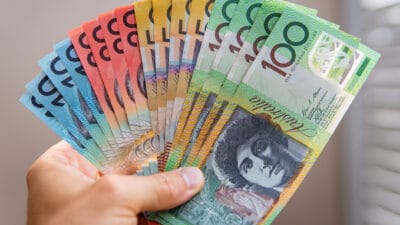Yesterday, the Reserve Bank of Australia (RBA) surprised Australians by… not increasing interest rates. With 12 interest rate rises under the belt since May 2022, many Aussies have become used to rates going up like clockwork around this time of the month.
Even though rates didn't rise yesterday, at 4.1%, the cash rate is still at its highest level in over a decade. This means that Australians can now get access to savings accounts and term deposits that offer yields of over 5% per annum.
These cash investments might be starting to look very attractive to ASX investors, who have long chased ASX shares as the only source of meaningful yield.
After all, a 5% term deposit requires no risk to your capital, has zero volatility, and comes with the promise that you will get your money back on a certain date, plus the interest you're owed. No ifs or buts.
In stark contrast, ASX shares offer everything a term deposit doesn't. Shares are volatile. There's no way of guaranteeing that you will be able to sell your shares at a certain point for even what you paid for them, let alone at a profit.
Dividends from ASX shares are a great source of yield and passive income. But again, dividends are unpredictable, and most companies adjust the dividends they pay out each and every year. Sometimes they rise, but other times they can fall, and dramatically so.
So why would an investor chasing healthy yield on their capital today even consider ASX shares when there's a 5% term deposit on offer?
Is a 5% term deposit better than ASX shares?
So the ASX is home to hundreds of dividend-paying shares. Many current sport dividend yields that are above 5% per annum, such as Westpac Banking Corp (ASX: WBC), Harvey Norman Holdings Limited (ASX: HVN) or BHP Group Ltd (ASX: BHP).
And many payout yields below 5%, including Woolworths Group Ltd (ASX: WOW), Telstra Group Ltd (ASX: TLS) and Commonwealth Bank of Australia (ASX: CBA).
But for argument's sake, let's assume we find an ASX share that has an exact 5% yield right now.
An investor who puts $10,000 into a term deposit for one year at 5% will earn $500 in interest income over 12 months. That interest income is fully taxable, and will simply sit on top of any other income earned over the 12 months. That investor will then get their $500 back after the term, along with their original $10,000. Done and dusted.
If that investor had instead invested their $10,000 into our ASX dividend share with its 5% yield, they would have also received $500 in dividends income. But that dividend income might come with full franking credits attached, as most ASX dividends do.
$500 in fully-franked dividends will give our investor approximately $214.30 in franking credits as well. Our investor can then either use these credits as a tax deduction, or a cash refund, based on their circumstances.
So right off the bat, our dividend investor is already ahead of our term deposit investor.
Equity vs. debt
But we should also consider what our investor has their money in. A term deposit is essentially a debt, a loan to a bank or other financial institution with you as the creditor. Owning shares, however, means our share investor has an equity stake in a business, and is entitled to a share of its profits and dividends.
Profits can compound over time if the company can grow. That's why it's entirely possible that after 12 months, your principal investment can grow in value if you are invested in shares. As well as the dividend income available.
This will result in its owners, or shareholders, becoming exponentially richer as long as the business can keep growing. This is why almost all of the richest people in the world have most of their wealth in shares.
Term deposits don't allow this. You are simply entitled to receive your capital at the end of the term. No more, no less. A term deposit offers no stake in anything, and no prospect of compounding growth and earnings. This is what our term deposit investor is forfeiting in exchange for 'safety'.
We'll end with a quote from the legendary investor Warren Buffett on the folly of investing in cash assets over shares:
Today people who hold cash equivalents feel comfortable. They shouldn't. They have opted for a terrible long-term asset, one that pays virtually nothing and is certain to depreciate in value.









